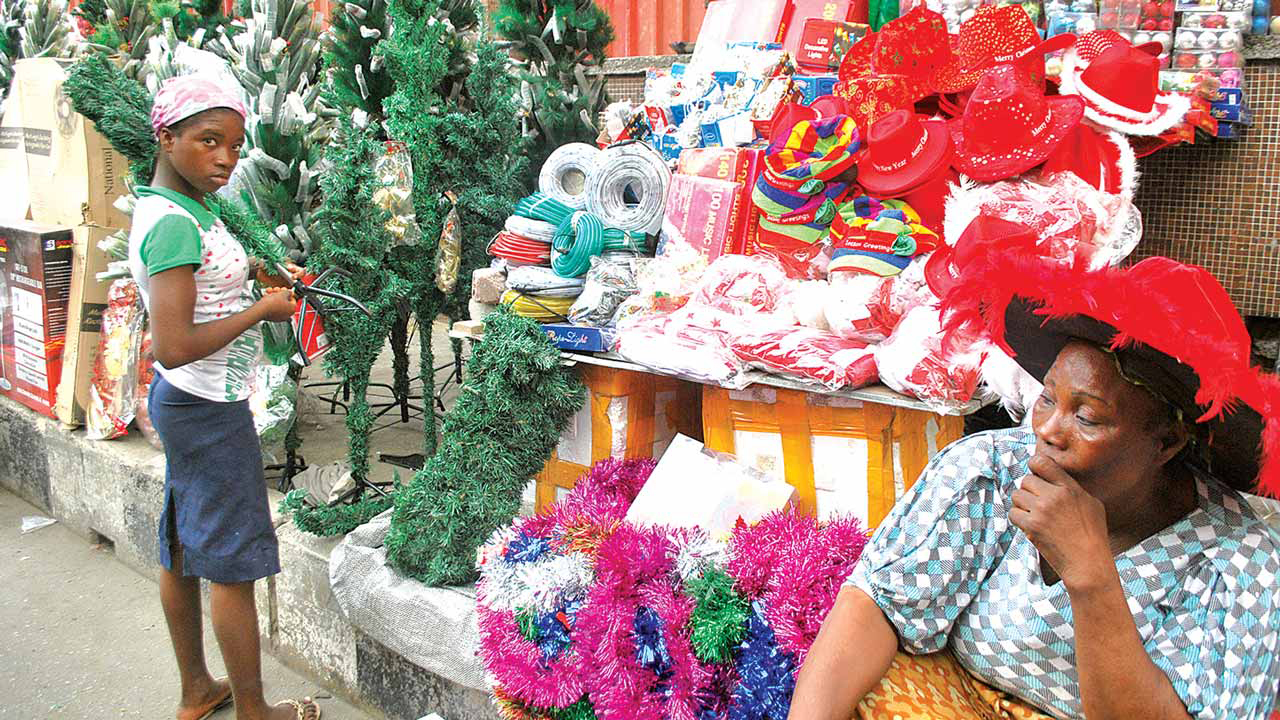As Christmas approaches, many Nigerians grapple with the harsh reality of rising inflation, significantly denting their purchasing power and turning what should be a festive season into a financial challenge.
Basic items essential for a joyous Christmas—food, drinks, clothing, and transportation—have witnessed an alarming cost surge. The National Bureau of Statistics (NBS) reports a headline inflation rate of 28.2% for November 2023, marking the 11th consecutive monthly increase and the highest level since July 2005.
The major culprits contributing to Nigeria’s inflation are food and beverages, road and air transport, pharmaceutical drugs, and accommodation, among others, according to the NBS.
Rapid Increase in Food and Drinks Costs
The NBS’s composite consumer price index reveals a staggering 92.73% increase in the average cost of obtaining food and drinks over the past three years. The price index for food and non-alcoholic beverages surged from 395.6 in November 2020 to 762.4 in November 2023.
Breaking it down further, a year-on-year analysis shows increases of 17.15% from 2020 to 2021, 24.03% from 2021 to 2022, and 32.63% from 2022 to 2023 in November of each respective year. Notably, food inflation hits 32.84%, burdening Nigerian households with heightened expenses for rice, bread, yam, vegetables, and tomatoes.
Key food items experienced significant price hikes within three years, such as local rice (105% increase), imported rice (92% increase), frozen chicken (107% increase), unripe plantain (170% increase), ripe plantain (161% increase), and a bottle of groundnut oil (148% increase).
Escalation in Clothing and Shoes Costs
Data from the NBS composite price index underscores a 57.48% increase in the cost of clothes and shoes over the past three years. The price index rose from 320.8 in November 2020 to 505.3 in November 2023. Annually, the increase steadily climbed from 14.76% in November 2021 to 17.66% in November 2022, slightly dropping to 16.63% in November 2023.
Transportation Costs Surge
With the removal of fuel subsidies, the cost of transportation has surged by 74.65% in three years, according to NBS data. The price index rose from 311.7 in November 2020 to 544.4 in November 2023. Annually, the increase was 15.03% in November 2021, 19.53% in November 2022, and 27.02% in November 2023.
Despite the challenges, President Tinubu has approved a 50% discount on road transport travel across the country from December 21, 2023, to January 4, 2024, aiming to alleviate the financial strain on Nigerians during the festive season. However, former Governor Peter Obi has criticized the lack of checks and balances in the intervention’s implementation process.
The Economic Strain and Its Implications
Living in Nigeria has become increasingly challenging, with surging prices attributed to the removal of fuel subsidies and the fluctuating value of the naira. As food prices continue to rise relentlessly, many households must cut down on purchases and forgo traditional celebrations.
With headline inflation at 28.2%, households are expected to allocate a significant portion of their earnings to purchasing food items for Christmas celebrations. Nigeria’s most expensive states to spend Christmas in include Kogi, Lagos, and Rivers.
As Nigerians brace for an expensive Christmas, the economic strain raises concerns about the broader implications for financial stability and public well-being.











